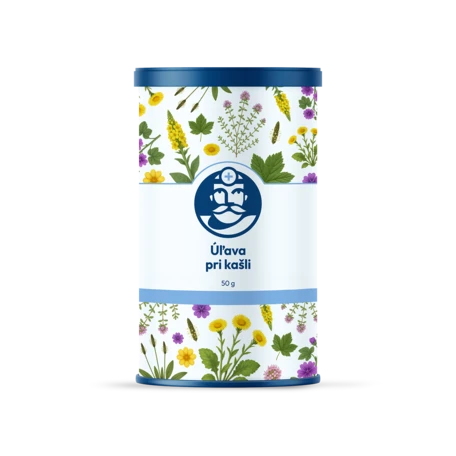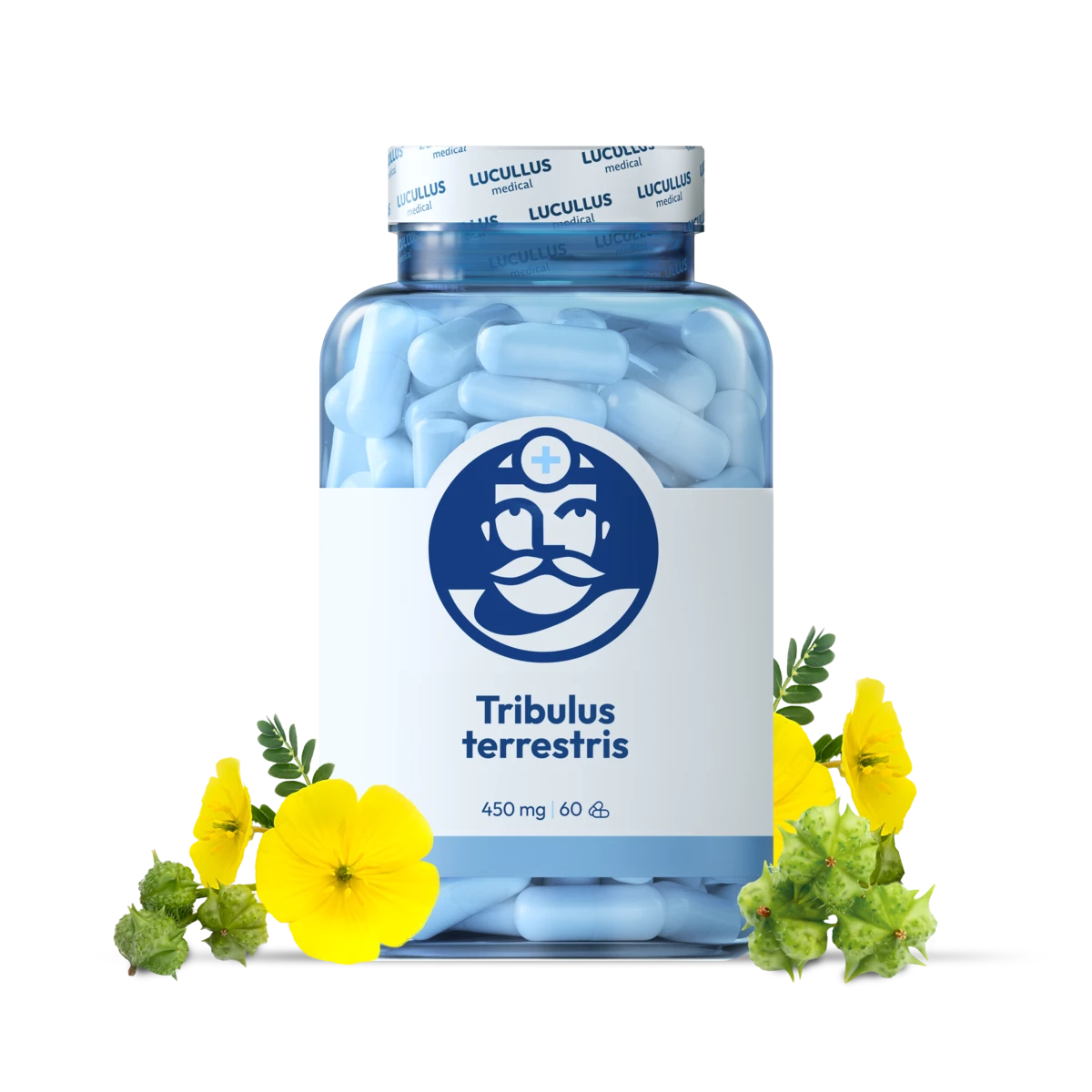

Tribulus terrestris
Pack of 60 capsules
Pack of 180 capsules
Nutritional value
| Active ingredient | In daily dose | % Ref |
|---|---|---|
| Tribulus terrestris - plant extract standardized to 95% saponins | 450 mg | - |
Ingredients: Tribulus terrestris extract, capsule made of gelatin and water.

Description
Activate your energy and hormonal balance with Tribulus terrestris
If you lack energy and vitality and feel reduced physical or mental performance, it may be a sign of hormonal or metabolic imbalance. Stress, physical strain and a fast pace of life can exhaust the body faster than it can regenerate. Tribulus terrestris harnesses the power of puncture vine, a traditional herb that naturally supports hormonal activity, physical fitness and long-term vitality. The extract, with 95% saponin content, provides a highly concentrated effect that helps the body function more efficiently, resiliently and in a more balanced way.
Key benefits of the product
- Supports hormonal balance – high phytosaponin content promotes harmonious hormonal activity and contributes to stable energy, vitality and physical and mental well-being.
- More strength and performance – popular among athletes for promoting regeneration, increasing resistance to exertion and improving dynamic performance.
- Enhanced libido and sexual vitality – natural aphrodisiac effects support libido, sexual energy and overall reproductive health.
- Improved mental resilience – saponins support energy metabolism and concentration, helping to manage fatigue, stress and mental exhaustion.
- Antioxidant and anti-inflammatory protection – some saponins act as antioxidants, protecting cells from oxidative stress and contributing to healthy ageing and the prevention of kidney stones.
Composition and effects
- Tribulus terrestris – high-quality extract 450 mg with 95% phytosaponins. The active ingredients naturally support hormonal processes, energy production and overall physical performance. It is one of the most effective forms of this traditional plant.
Why it works
Tribulus terrestris is rich in phytosaponins, which act as natural modulators of selected hormonal processes. They are traditionally associated with supporting vitality, reproductive health and overall energy. Available research suggests that the extract may influence the activity of luteinising hormone and other mechanisms of the endocrine system, indirectly contributing to hormonal balance and stable energy levels.
Tribulus supports libido, regeneration, physical vitality and mental well-being – the effects are complex and are not necessarily dependent on an increase in testosterone levels. Phytosaponins improve metabolic processes associated with energy production, help alleviate fatigue and, thanks to their antioxidant effect, protect cells from oxidative stress. The combination of these effects creates the basis for a long-term effect on energy, vitality and physical and mental resilience.
Recommended use and production quality
Take 1 capsule daily with food. The product is manufactured in Slovakia under controlled conditions and packaged in a protective bottle that protects the contents from moisture and light. It is free of allergens, GMOs and synthetic additives.
Boost your vitality, performance and self-confidence naturally. Give your body the power of a plant-based stimulant that respects your body's natural processes. Get back to your rhythm.

Reviews
I am very satisfied with this product. I have more energy and I sleep better. I recommend it!
I am satisfied because after taking the capsules I have a better physical condition. I recommend it to every athlete.
I have been taking Tribulus terrestris for a month now and I feel more energetic. It helps me especially with sports activities.
After a month of taking it, my blood pressure improved. A great product for the health of the cardiovascular system.
After three weeks of taking it, I feel a significant increase in strength and endurance during exercise. Excellent supplement for athletes!

Ingredients
In each of our recipes, we invest in research to identify the right ingredients, compounds, and doses to achieve real benefits. We then manufacture our unique recipes in the most modern facilities in Slovakia.
Tribulus
Anchovy is a natural stimulant for men, called green viagra, naturally increases testosterone.


























